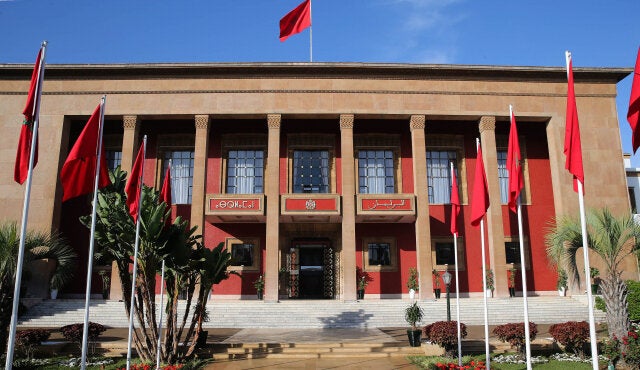Rabat – Morocco’s House of Councilors, or the upper house of Parliament, experimented with electronic voting for the first time today.
Parliamentarians cast votes via a specialized and secure electronic platform, allowing members to respect social distancing measures and contribute their votes from cities other than the nation’s capital, Rabat.
The shift toward a virtual voting system is part of Morocco’s effort to safeguard against the spread of COVID-19 by supporting the logistical means of remote work. It is also seen as a significant advancement for the legislative process.
“Voting by electronic means is a new step for the legislative institution,” Mohamed Haytoum, a member of the Moroccan Labor Union parliamentary group, told Maghreb Arab Press (MAP). He described the process as “a step forward.”
Haytoum added that remote voting followed “a democratic technique, guaranteeing the individual vote of each member of the House of Councilors.”
The electronic voting system falls within the constitutional framework outlined in Articles 60 and 175, which stipulate parliamentary members’ right to vote, and state that voting must take place in public and by a show of hands or by means of an electronic device provided for the purpose of voting.
Morocco’s parliament consists of 120 members, each elected for six-year terms of office. The remote voting system is to be generalized and implemented across the standing committees moving forward under state of emergency safety measures.
The president of the House of Councilors stressed the importance of adopting electronic measures and mobilizing all technical means for work in order to help curb the spread of the outbreak.
Morocco’s state of emergency is scheduled to end on May 20. However, officials have cautioned that even if the country observes this end date, lifting state of emergency measures will be gradual and resuming normal activities will take time.
“Once the epidemiological situation has stabilized and the index of the virus spread has declined, at that time only we may speak of lifting the state of health emergency,” said Minister of Health Khalid Ait Taleb in an interview on May 8, insulating the country may decide to further extend its COVID-19 lockdown.





